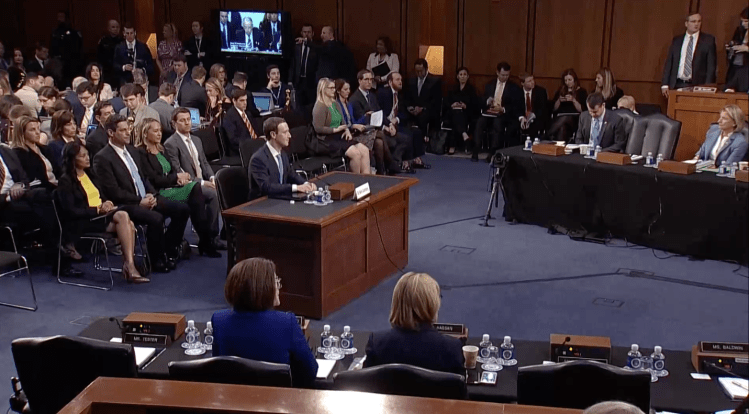Facebook has declined a request to send CEO Mark Zuckerberg to testify before an “international grand committee” on the topic of fake news and disinformation — though the committee continues to grow.
U.K. MP Damian Collins — one of the organizers of the committee, along with Canadian MP Bob Zimmer — tweeted this morning that Facebook declined the invitation last week. However, representatives from Australia, Argentina, and Ireland have now signed on to appear at the hearing, scheduled for November 27.
This morning, Collins again reiterated the call for Facebook to send Zuckerberg, writing that “five parliaments are now calling on you to do the right thing by the 170 million users in the countries they represent.”
Facebook’s rejection letter stated that “we continue to fully recognise the seriousness of these issues and remain committed to working with [your committees] to provide any additional information you require,” but that “it is not possible for Mr. Zuckerberg to be available to all Parliaments.”
June 5th: The AI Audit in NYC
Join us next week in NYC to engage with top executive leaders, delving into strategies for auditing AI models to ensure fairness, optimal performance, and ethical compliance across diverse organizations. Secure your attendance for this exclusive invite-only event.
Facebook say that they remain committed" to working with our committees "to provide any additional relevant information" that we require. Yet they offer no means of doing this. The call for accountability is growing, with representatives from 5 parliaments now meeting on the 27th pic.twitter.com/VJFtpqUi0r
— Damian Collins (@DamianCollins) November 7, 2018
Zimmer and Collins — on behalf of the U.K. and Canadian parliaments — sent a letter to Facebook on October 31, asking them to send Zuckerberg to testify in front of a multi-country hearing in London. The hearing would look at Facebook’s attempts to fight fake news and disinformation on its platform — something that other Facebook executives have discussed with the U.K. government.
Over the last year Facebook has repeatedly rebuffed Collins’ requests to send Zuckerberg — to testify in front of a Parliament regarding the issue of fake news, and the improper harvesting of Facebook data conducted by now-defunct U.K. firm Cambridge Analytica. The U.K. Parliament even went so far as to say that Zuckerberg would face a formal summons to testify the next time he appeared in the country.
Facebook noted that “in the U.K .we provided multiple written submissions to this [Cambridge Analytica] inquiry, including responding to extensive written follow-up questions, senior Facebook staff gave evidence to the U.k. Committee’s session in Washington and one of the most senior people in the company has given 5 hours of testimony in the U.K. Parliament.”
After being stonewalled, Collins teamed up Zimmer, a Canadian MP who heads up a committee that focuses on digital media policy, to once again try to force Zuckerberg to appear.
“We understand that it is not possible to make yourself available to all parliaments. However, we believe that your users in other countries need a line of accountability to your organisation — directly, via yourself.”
Update, 9:04 a.m. Pacific: Updated with additional comments from Facebook.

